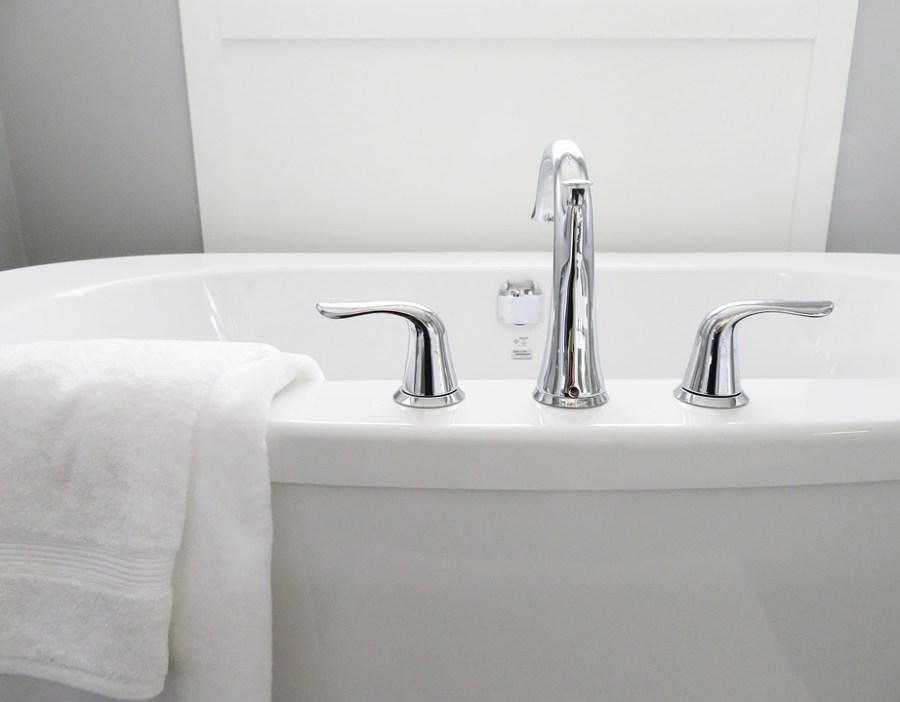
If you’ve ever had chickenpox, you’re at risk for developing shingles. It’s a viral infection that isn’t usually serious, but it can be obnoxious. Symptoms include a painful rash, burning, numbness, tingling, sensitivity to touch, redness and fluid-filled blisters. Some people may experience fatigue, headache, fever and sensitivity to light. Your doctor may prescribe some antiviral medications, along with some medications to help ease the pain. However, there are also some things you can do at home to soothe and reduce shingles symptoms and pain.
Turn to Cool Water
Cool water can be especially soothing, and you can use it in a variety of different ways. Start with a cold compress. Wet a washcloth or towel with cold water, and place it over your blisters. Let it sit for at least 20 minutes to help soothe itching. It can also help prevent the blisters from getting infected by keeping them clean. Do it several times a day as needed, but don’t apply it open blisters. If you want to soothe your entire body at once, fill your tub with cool water, and add either colloidal oatmeal or baking soda. Both can help relieve itching and soothe any pain or burning.
Keep Up Good Habits
You may not feel motivated to keep up your healthy habits when you have shingles, but doing so can really help your body fight the virus which means your symptoms may go away sooner or be less intense. Maintain a healthy diet that includes plenty of fresh fruits and vegetables. Certain vitamins can also help give your immune system a boost, including vitamins A, B-12, C and E. Consider taking a multivitamin or eating more foods with those vitamins in them such as citrus fruits, eggs, leafy greens, legumes, beans, spinach and tomatoes. If you can, get a little bit of exercise, whether you’re just taking a walk or doing some yoga poses. It’s also important to get quality sleep each night.
Eliminate Stress
During your battles with shingles, try to eliminate as much stress from your life as possible. Stress can actually intensify the pain, itching and other symptoms you may experience. You can do this by taking a break from work, having a friend or family member help you out around the house or postponing stressful events and activities. You can also practice various methods of relaxation, like meditation, tai chi, yoga or taking a soothing cool bath. You can even try distracting yourself. Read, or watch a movie. Call up an old friend for a chat, or binge watch a new TV show. Listen to music, work on some crafts or hobbies or play games on your computer or mobile device.
Watch What You Wear
While the actual shingles virus isn’t contagious, you can spread the virus that causes chickenpox to a person who has never had chickenpox. For this reason, you may opt to stay home from work, school or running errands for a few days while you recover from your symptoms. In this case, you can stay home and wear whatever is comfortable to you. If you do have to go out, however, you’ll want to dress in a way that won’t aggravate your symptoms or cause even more pain. Avoid items that are tight or restrictive. Looser clothing, especially items made from natural fibers, like cotton and linen, will feel much better.
Use Over-the-Counter Products
If you can run to the drug store or have a friend or relative do it, you may find some relief in various over-the-counter products. Calamine lotion is soothing and can cool your skin and prevent itching. You may also want to try vaseline. Rub it over the rash, and cover it with a clean piece of cloth or cotton to prevent your clothing, sheets and other items from rubbing it against it. Whatever you decided to use, avoid lotions, topical creams and medications (unless prescribed by your doctor) and any type of product with a fragrance in it, as these may cause more irritation. Make your own soothing paste with one part cornstarch, one part baking soda and one part water.





